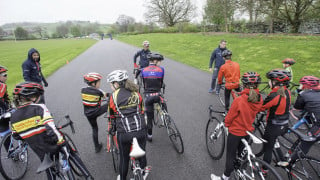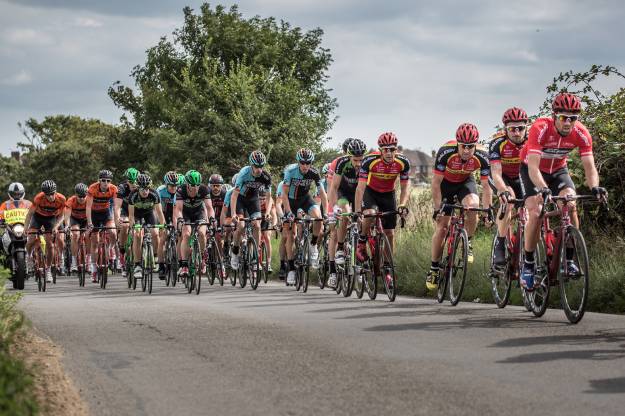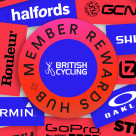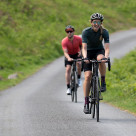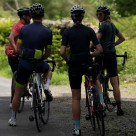Regardless of how you are involved in Scottish Cycling we want you to be safe, have fun and enjoy it. We want everyone to respect and promote your rights and to take your wellbeing and protection seriously so that you can achieve your goals within cycling in a safe and positive environment.
Your Rights
You have rights, whatever your ethnicity, gender, religion, language, abilities or any other status is. Your rights are explained in the “United Nations Convention on the Rights of the Child” or “UNCRC”. This UNCRC provides a list that informs you of the rights that children and young people are entitled to around the world. The UK government agreed in 1991 to make these rights part of our laws, which means that adults must follow these rights when making decisions that affect you. Some of your rights identified within the UNCRC are as follows:
- Article 1: A child is defined as anyone under the age of 18.
- Article 2: You have the right not to be discriminated against
- Article 3: Your best interests must be put first.
- Article 12: You should have the opportunity to say what you think and to be taken seriously.
- Article 19: You should be protected from all forms of violence, abuse, neglect and mistreatment.
- Article 28: You should have access to education.
- Article 31: You have the right to relax, play and join in a wide range of activities.
Your rights also extend online. 5Rights Foundation exist to explain your rights online. Your 5Rights are:
- The right to remove - the right to easily edit or delete content.
- The right to know - the right to know who holding/profiting is from your information.
- The right to safety and support – the right to be protected from illegal practices and supported through upsetting scenarios.
- The right to informed and conscious use –the right to understand and use technology but be able to control your usage.
- The right to digital literacy – the right to be taught the skills to use and create digital technology effectively.
To find out more on the 5Rights Foundation, the 5Rights and what you can do to use them in your daily life, please click here.
Childline have developed a tool to help you report and remove nude images that have been shared online. You can find information on this tool here.
Young People’s Panel
At Scottish Cycling we have a Young People’s Panel. This panel is a national platform to represent a voice for young people from across Scotland to influence and shape the future of Cycling in Scotland. The young people involved will have the opportunity over a two-year period to have their views heard and valued and the chance to influence decision making and drive change in the sport.
More information on the Young Panel’s Panel can be found here.
When do you know if something is wrong?
Something is wrong if someone:
- Constantly teases you, shouts at you or calls you names.
- Makes suggestive remarks or tries to pressurise you into sexual activity.
- Threatens, hits, kicks or punches you.
- Damages or steal your belongings.
- Touches you or does anything in a way that makes you feel uncomfortable.
- Does anything that makes you feel lonely, worried, unsafe, hurt or embarrassed
- If you are bullied or abused it is not your fault. If this is happening to you try to:
- Be firm and tell the person to stop - make a lot of noise to attract attention.
- Keep a note of the date, time and place, what happened, how you felt and the name of anyone who may have seen what happened.
- Get away from the situation quickly, go to a public place to find help or call the police (999).
- Call your Club Welfare Officer.
- Tell your parents/carers, Club Welfare Officer or an adult you can trust what has happened as soon as possible.
How you can raise a concern
If you are worried or concerned about anything, this could be something about you, a family member, a friend or the way an adult is acting or acted towards you, there are a range of people who you can talk to who can help and provide you with the support you need:
- A trusted adult such as a parent/carer, a family member, a teacher or a doctor.
- Your coach.
- Your club’s Wellbeing & Protection Officer.
- Scottish Cycling’s Wellbeing & Protection Officer.
They will listen to you and take your concerns seriously. They may need to report these concerns on to someone else, but they will inform you who they are going to tell and why. It can be daunting telling someone about your concerns but Childline provide some tips on how to build confidence within yourself so you can tell someone you trust. This guidance can be found here or through their YouTube page here.
Scottish Cycling can be contacted through wpo@scottishcycling.org.uk and we are more than happy to help and support you with any questions you have.
Childline are available to support you 24/7 on 0800 1111 or use their 1-2-1 online chat.
If you are concerned about the way someone is communicating with you online, you can report this to CEOP here.


